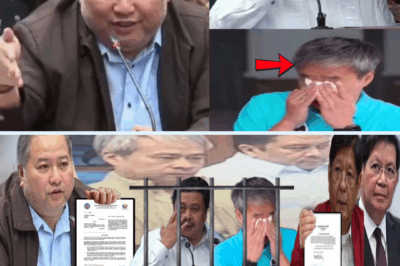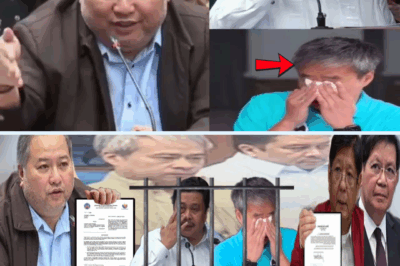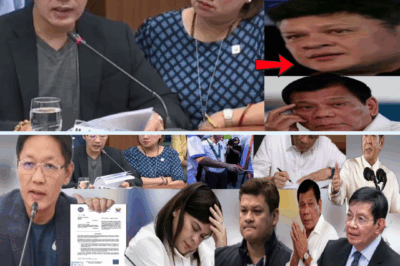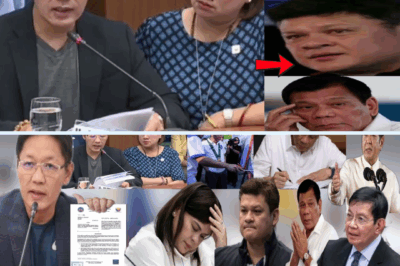Bretman Rock Calls Out “Nepo Babies” for Lavish Spending and “Ugly Fashion Choices”
The Philippines’ social media sphere was set ablaze this week after Filipino-American beauty influencer and reality TV star Bretman Rock unleashed a fiery rant aimed at so-called “nepo babies”—the privileged sons and daughters of government officials and wealthy contractors. In a series of Instagram Stories posted on September 3, 2025, Bretman voiced frustration not only at the culture of entitlement but also at the way these young elites flaunt their luxury lifestyles while ordinary Filipinos continue to grapple with economic hardships.
His outburst has since gone viral, fueling national conversations about corruption, accountability, and the disconnect between privilege and public service.
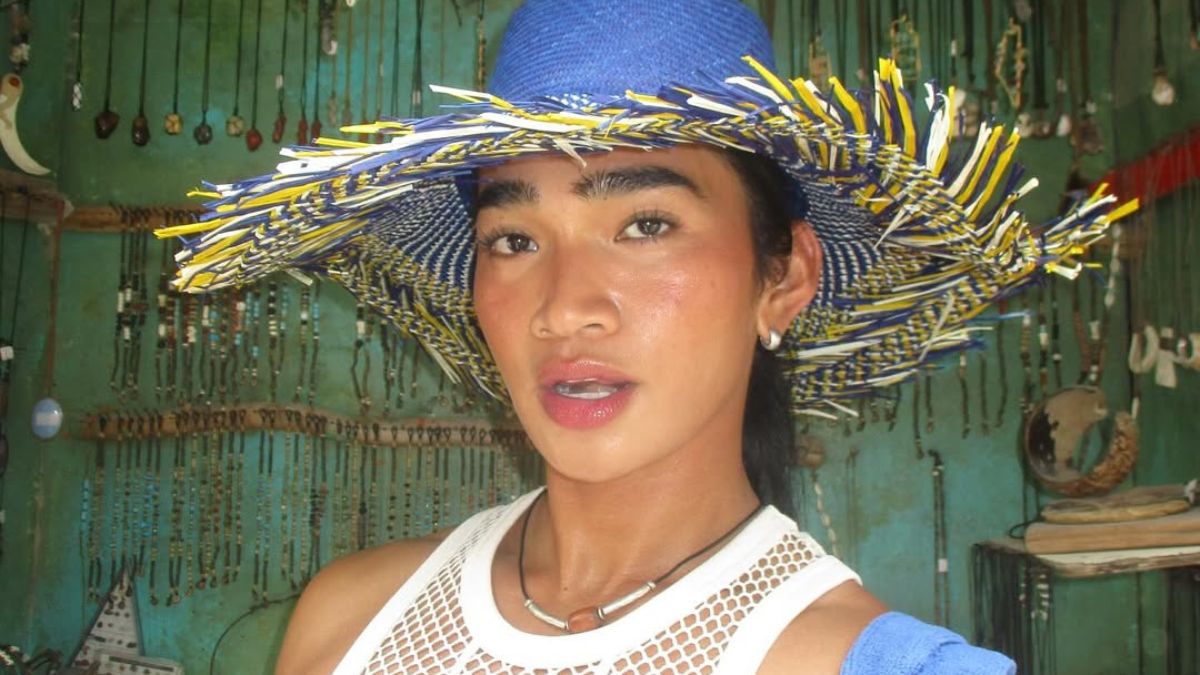
A Multilingual Rant that Struck a Nerve
True to his bold personality, Bretman Rock’s rant was delivered in a whirlwind of English, Tagalog, and Ilocano, reflecting both his global reach and his deep Filipino roots. Known for his unapologetic humor and candor, the influencer did not mince words:
“I would be mad too if I was funding these motherf*cking nepo babies’ life and they’re buying ugly things. I would be mad, trust.”
Bretman emphasized that while people often debate whether Filipino languages should be called “languages” or “dialects,” such semantics pale in comparison to the country’s more pressing issues—particularly the unchecked lifestyle of the privileged youth. His decision to mix languages only amplified the authenticity of his message, resonating with both local and overseas Filipinos.
Although Bretman refrained from naming individuals, the timing of his rant coincided with a surge of online outrage against the children of government officials and business figures linked to state contracts. Many netizens interpreted his comments as a thinly veiled criticism of these personalities.

Who Are the “Nepo Babies”?
The term “nepo baby”—short for nepotism baby—has become a global buzzword, especially in entertainment and politics. It describes individuals who benefit from the power, wealth, or fame of their parents, often enjoying opportunities and privileges unavailable to ordinary people.
In the Philippines, this term has gained new traction in 2025, as netizens increasingly scrutinize the lifestyles of the sons and daughters of politicians, contractors, and bureaucrats. Allegations of corruption, nepotism in government projects, and questionable wealth accumulation have only intensified the criticism.
Among those drawing online attention in recent weeks are:
Claudine Co, daughter of Christopher Co, co-founder of Hi-Tone Construction and Development Corporation.
Jammy Cruz, son of Noel Cruz, general manager of Sto. Cristo Construction and Trading Inc.
Verniece and Vern Enciso, children of former Bureau of Customs executive Verne Enciso.
Gela Alonte, daughter of Biñan Mayor Angelo “Gel” Alonte and niece of Representative Marlyn “Len” Alonte Naguiat.
These individuals have been heavily criticized for showcasing extravagant vacations abroad, flaunting designer clothes, and posing with luxury handbags—sometimes valued at millions of pesos—while ordinary citizens struggle with rising inflation and natural disasters like flooding.
Why Bretman’s Words Resonate
For many Filipinos, Bretman Rock represents the opposite of these “nepo babies.” Born in Cagayan, he migrated to Hawaii with his family at a young age and built his career from the ground up. Through creativity, humor, and relentless authenticity, he amassed millions of followers across YouTube, Instagram, and TikTok.
Unlike the children of political dynasties or business moguls, Bretman’s success is widely seen as self-made. His critique therefore carries extra weight: he is not speaking from a place of envy but from the perspective of someone who worked hard to achieve recognition and financial stability.
Moreover, Bretman has long been celebrated for using his platform to call out hypocrisy and injustice. Whether addressing beauty standards, LGBTQ+ representation, or Filipino cultural pride, he has consistently balanced entertainment with sharp social commentary. His recent outburst about “nepo babies” fits this pattern, tapping into a national frustration with corruption and inequality.
The Larger Context: Corruption, Flood Control, and Public Anger
Bretman’s tirade comes against a backdrop of growing public outrage over alleged corruption in infrastructure and flood-control projects. Reports suggest that billions of pesos have been poured into these initiatives, yet many communities remain vulnerable to devastating floods. Critics argue that money is being mismanaged—or worse, siphoned off—by political and business elites.
In this context, the sight of government-connected youth vacationing in Europe, wearing haute couture, and carrying limited-edition luxury bags has struck many as not only insensitive but offensive. It symbolizes a widening gap between public servants and the people they are meant to serve.
The “ugly fashion choices” that Bretman mocked may seem trivial on the surface, but his words underline a deeper frustration: it is not just the money being spent, but the careless arrogance with which privilege is flaunted.
Social Media Reactions
Unsurprisingly, Bretman’s outburst has been met with a flurry of reactions:
Supportive voices praised him for “saying what many Filipinos are afraid to say,” hailing him as a truth-teller unafraid of calling out the powerful.
Critics, on the other hand, accused him of stirring controversy without naming names, which they argue leaves room for misinterpretation. Some also questioned whether celebrities based abroad should weigh in on domestic political issues.
Memes quickly spread online, with many netizens humorously comparing their own modest lifestyles to the extravagance of “nepo babies,” while echoing Bretman’s sentiment: “At least we have better fashion sense!”
The incident has further cemented social media’s role as a battleground for political discourse in the Philippines, where traditional media often treads cautiously around sensitive issues.
The Broader Debate on Nepotism and Accountability
Beyond the memes and soundbites, Bretman’s rant has opened up important questions:
How should wealth be accumulated and displayed when it is tied to public service?
Do children of public figures have a responsibility to live modestly, given their parents’ positions?
What mechanisms can ensure accountability in government contracts and prevent corruption?
While these questions are not new, Bretman’s voice has amplified them to a global audience. His millions of followers abroad are now more aware of the Philippines’ internal struggles, adding international scrutiny to what might otherwise remain a domestic issue.
Conclusion: A Viral Moment with Lasting Impact
Bretman Rock’s rant may have begun as a spontaneous Instagram Story, but it has since snowballed into a viral moment with potential long-term consequences. By highlighting the absurdity of “funding nepo babies with ugly fashion choices,” he cut through the noise of political rhetoric with humor, authenticity, and righteous anger.
Whether or not the individuals in question respond, the message has already struck a chord: privilege unchecked breeds resentment, and in a country where ordinary citizens work tirelessly just to make ends meet, ostentatious displays of wealth by the connected few feel like a slap in the face.
As the Philippines continues to grapple with corruption scandals, infrastructure challenges, and the widening gap between rich and poor, Bretman’s words may be remembered as more than just a rant—they may stand as a cultural marker of accountability in the age of social media.
News
Alcantara’s shocking testimony shakes Villanueva and Estrada—dark secrets surface, power trembles, and the nation demands the hidden truth.
Breaking News: Villanueva and Estrada Under Fire as Henry Alcantara Testifies In a stunning twist that has sent shockwaves across…
Villanueva and Estrada shaken—Alcantara’s explosive testimony reveals hidden secrets, sparking fear, betrayal, and a nation demanding shocking answers.
Breaking News: Villanueva and Estrada Under Fire as Henry Alcantara Testifies In a stunning twist that has sent shockwaves across…
Villanueva, Estrada cornered—Alcantara’s shocking testimony drops bombshell secrets, power crumbles, and the nation braces for explosive truth.
Breaking News: Villanueva and Estrada Under Fire as Henry Alcantara Testifies In a stunning twist that has sent shockwaves across…
Discaya’s bombshell rocks the Dutertes—secrets explode, power crumbles, and the nation holds its breath for the truth.
Breaking News: Duterte Family Faces Political Firestorm as Discaya Testifies In a political drama that has gripped the Philippines like…
Duterte empire on the brink—Discaya breaks silence, explosive secrets revealed, power shaken, and the nation waits breathlessly.
Breaking News: Duterte Family Faces Political Firestorm as Discaya Testifies In a political drama that has gripped the Philippines like…
Discaya’s shocking testimony ignites firestorm—Duterte dynasty shaken, secrets exposed, and a nation demands answers to chilling allegations.
Breaking News: Duterte Family Faces Political Firestorm as Discaya Testifies In a political drama that has gripped the Philippines like…
End of content
No more pages to load

